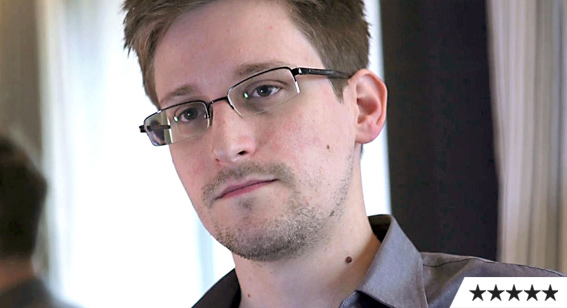Review: Citizenfour

Many of the best documentaries feature events that seemingly happen by accident, narratives that appear to unfold in manners that surprise audiences and filmmakers alike. While Citizenfour is a captivating and unmissable portrait of leaker Edward Snowden, one of its many interesting facets is how unlike the unpredictable doco model it turns out to be while still proving utterly engrossing from start to finish.
As also happens with many dramatisations of true stories, those most interested in the subject matter have a pretty good idea of how events transpired, limiting the surprises on offer. And with Snowden himself having anonymously approached filmmaker Laura Poitras (for reasons as chilling as his other revelations in all but scope) before disclosing the scarcely-believable levels of mass surveillance being carried out by the West, it’s certainly no accident her camera is in the room when things start to get crazy.
The essence of Citizenfour‘s uniqueness lies in the personal coverage of Snowden as he prepares for the publication of information he’s leaked and the instant fallout and high stakes for all involved. There aren’t any gadgets to be seen, and very little in the way of cinematic spy tradecraft, yet this film puts us right in the middle of the sort of ultra-risky espionage we’ve all seen in thrillers before – only this time it’s real.
From the banality of its Hong Kong hotel room setting, to the intimate access afforded to this young man who sparked a furore among the world’s intelligence agencies and governments, Poitras’ film captures a seldom-seen glimpse of a shift in global awareness, shot from inside the eye of an unprecedented storm. The human dimension it brings to Snowden will intrigue anyone who sees this, no matter their thoughts on his conduct. Equally lionised and demonised over the past few years, he’s depicted here as a man rather than a headline, for once the centre of his own story.
















